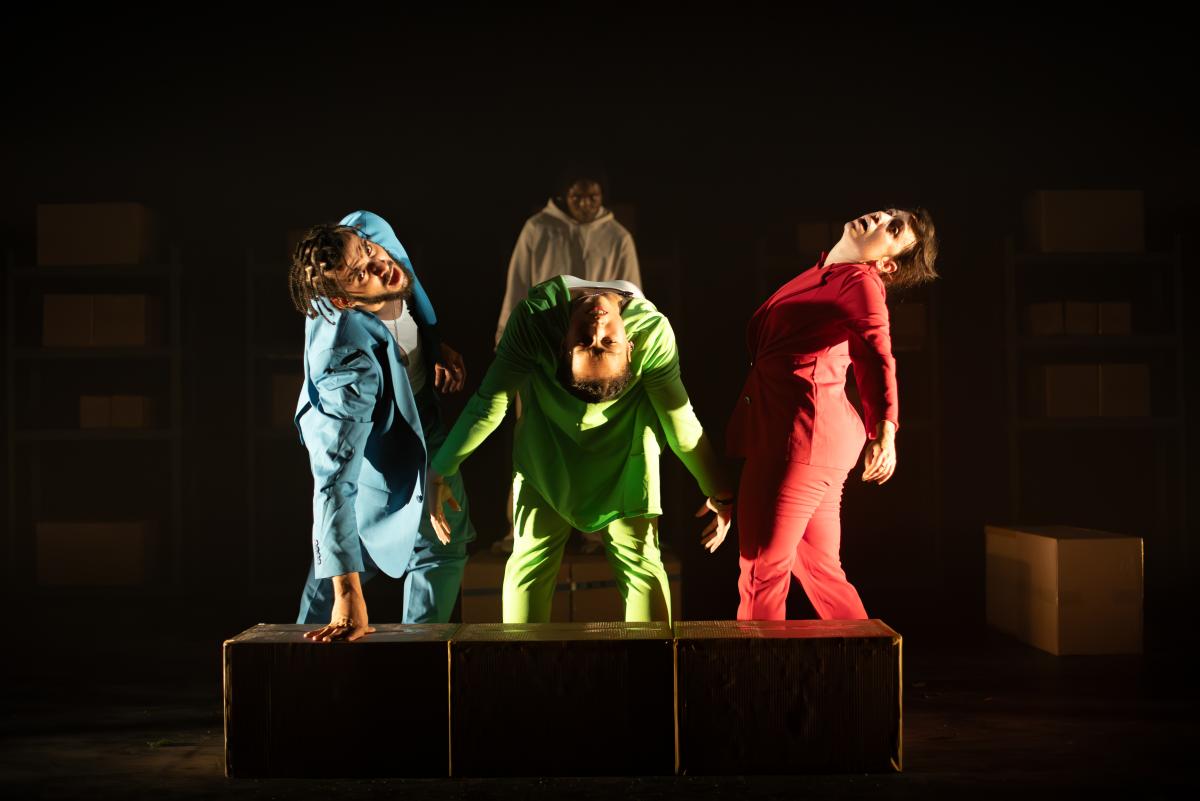
As we said back in January with our colleagues at London Arts and Health, we are organisations devoted to health, wellbeing and equity; and we’re watching these concepts devastated every day in Gaza. Art-making, too, is always impacted by propaganda wars, and we are in the midst of a particularly insidious one right now. Although thousands of artists have been calling for ceasefire since October last year, many organisations are still stumbling to know how to speak about what's happening, how to be honest, how to talk of peace without erasing horror. Or perhaps it’s not our place to comment on world events; we’re not experts and without expertise we slide into a reactive favouring of some news items over others. But then I think about the academic and cultural boycotts against South Africa and how impactful the arts sector’s position seems to have been back in the 1980s and 1990s. Different times to be sure, but still.
At the start of covid and then again after the death of George Floyd, many people’s emails acknowledged how bad things were – “I hope you’re ok despite what’s happening”. Not so much now. Perhaps we can’t just keep saying it. Perhaps it feels presumptuous. I don’t know. But we are living in a crisis still; picking our way between terrible news reports, trying to focus on building something better. It’s all connected of course. Climate change, inequity, war and – let’s be frank – profit. The attacks on Gaza “have produced more planet-warming gases than 20 climate-vulnerable nations do in a year”. UK arms sales doubled in 2022. As so many people have pointed out, the model of economic growth to which we cling takes no account of how that growth is come by, of the impacts that this might have on how we feel – it takes no account of shame and fear and social division. But the veil is thinning – it’s becoming harder than ever to see our systems as neutral or benign.
So it’s even more important that we work to change these systems – and to use culture and the arts, first, to hold up a mirror and next, to offer something new.
Look at any of the artists and organisations having a substantial impact on people’s wellbeing and agency, and you will find people devoted to this dual quest. Like Quiet Voice – whose work was explored in a LAH Creative Health Sandpit last year. Participants spoke about how the work legitimised their experiences of the mental health system, a starting point for a different relationship with the system, with each other, with themselves.
Then there are the organisations using the arts to change power dynamics, to build democracy – like Arts & Homelessness International, using theatre to build relationships between local councils and homeless people. Or Lung, working with families to hold up a mirror to the failing prison system, to support other families, to encourage audiences to contact their government.
All of this is about deepening knowledge; about looking beyond the ‘nothing to see here’ tactics of propaganda and seeking something more human and real. Some of this is about reconsidering our professional histories, too – recognising that we are perhaps more involved than we think. I’m grateful to Fatima Lahham for her beautiful writing about therapeutic music practices within Islamic frameworks and her gentle invitation to locate our contemporary music making in hospitals in this history. She refers to Damascus, a place under bombardment now, and a place to which can be traced back numerous aspects of our work with creativity and health. Our own idea of what a hospital should be is rooted in 13th-century Damascus, as I remember learning from Yasmin Khan some years ago thanks to this publication by the Wellcome Trust.
...one of the earliest known hospitals was built in Damascus in 706 CE, becoming a model for more advanced hospitals that emerged later in Baghdad and Cairo. By the 12th Century these sophisticated hospitals were multidimensional in outlook – not just dispensing medicines and treatments but also considering the aesthetics in all its aspects.
Some of the oversimplification and shutting down in relation to Gaza reminds me of recent attempts to shut down the National Trust's commitment to uncover and publish the history of slavery at its properties. I looked up an article this morning that I remembered from the Museums Journal last year and found this wisdom from Corinne Fowler, who was the target of much abuse after her report into the Trust’s history:
I recently went on the Precipice Walk in North Wales and found it an irresistible metaphor for deepening our knowledge of British colonial history. The way can feel fraught with fear and danger. But sensitivity, emotional intelligence and historical evidence can illuminate the path and from there we can gain panoramic views, a more expansive and inclusive view of our colonial past and our postcolonial present.
No conclusions here, just a desire to speak some of the things I have been thinking, and make some connections across different aspects of our work. But I will end with this powerful thought from Laura Hassler, director of Musicians Without Borders.
Through all these years, I have learned that, in the most horrific of times, we still have agency. We can still do something. Musicians Without Borders is still engaging children, youth and adults in life-changing programs around the world, training young leaders, partnering with local activists, building our global musicians’ network, creating alternatives to a culture of war through the power of music.
